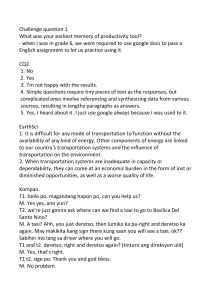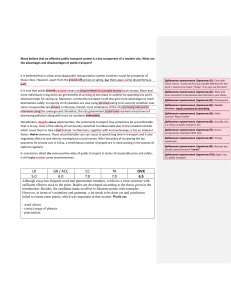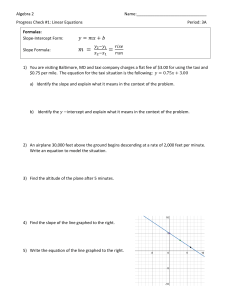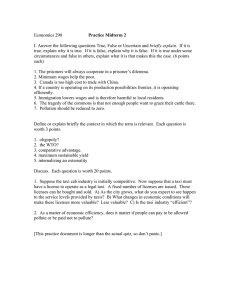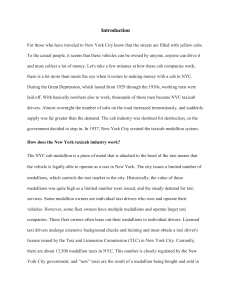I think reducing conflicts with gov't and non gov't groups is a huge advantage
advertisement
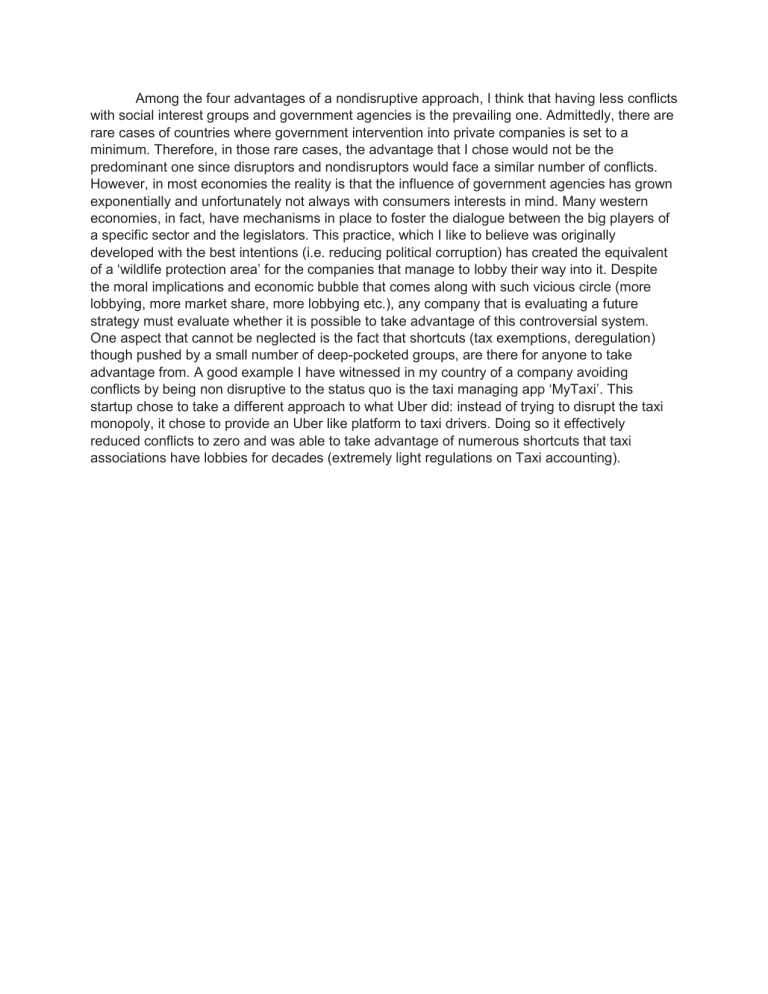
Among the four advantages of a nondisruptive approach, I think that having less conflicts with social interest groups and government agencies is the prevailing one. Admittedly, there are rare cases of countries where government intervention into private companies is set to a minimum. Therefore, in those rare cases, the advantage that I chose would not be the predominant one since disruptors and nondisruptors would face a similar number of conflicts. However, in most economies the reality is that the influence of government agencies has grown exponentially and unfortunately not always with consumers interests in mind. Many western economies, in fact, have mechanisms in place to foster the dialogue between the big players of a specific sector and the legislators. This practice, which I like to believe was originally developed with the best intentions (i.e. reducing political corruption) has created the equivalent of a ‘wildlife protection area’ for the companies that manage to lobby their way into it. Despite the moral implications and economic bubble that comes along with such vicious circle (more lobbying, more market share, more lobbying etc.), any company that is evaluating a future strategy must evaluate whether it is possible to take advantage of this controversial system. One aspect that cannot be neglected is the fact that shortcuts (tax exemptions, deregulation) though pushed by a small number of deep-pocketed groups, are there for anyone to take advantage from. A good example I have witnessed in my country of a company avoiding conflicts by being non disruptive to the status quo is the taxi managing app ‘MyTaxi’. This startup chose to take a different approach to what Uber did: instead of trying to disrupt the taxi monopoly, it chose to provide an Uber like platform to taxi drivers. Doing so it effectively reduced conflicts to zero and was able to take advantage of numerous shortcuts that taxi associations have lobbies for decades (extremely light regulations on Taxi accounting).
